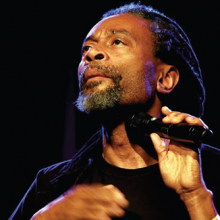spirituals
MUSIC IS MY safe space. When all hell is breaking out, I can put in my AirPods and turn on part of the soundtrack of my life and reset. The pandemic created a chronic hell that illuminated oppressive forces that have existed for centuries. Music became even more essential for my survival.
I am a Black clergywoman who is clear that “my emancipation doesn’t fit” many people’s equation. Let me say that another way: My authentic expression of self makes some people uncomfortable. My unapologetic expression of womanist Blackness often sheds light in the shadows of a corrupt world.
I won’t pretend that I have always felt free to be me. It took a pandemic to give space to be reminded by theologian and prophet Lauryn Hill that “deep in my heart, the answer, it was in me.” Hill’s lyrics and very existence compelled me to “[make] up my mind to define my own destiny.”
Some consider Hill to be one of the greatest lyricists of all time. An eight-time Grammy winner (with 19 nominations), she sings, raps, and acts. She is hip-hop royalty. In the ’90s, I wanted to be her. She wore the dopest locked hair style, had the most beautiful brown skin, and expressed her Blackness with boldness and class. She had, and still has, a lyrical flow that men and women couldn’t ignore. She was fly. (Translated as cool, sexy, smart, and stylish.)
Her industry-shaking debut solo album The Miseducation of Lauryn Hill, released in August 1998, will stand the test of time. Hill speaks truth in ways that penetrate the soul. I was a young mother when the album came out. She articulated things that only a Black woman could identify with. She spoke of the tension and beauty of having a child when society was telling her that motherhood and a career couldn’t coexist. She sang and rapped about self-respect, love gained, and love lost. This album is life. This album ministers. This album is sacred.

Anthony Mordechai Tzvi Russell. Photo via Clara Rice Photography / RNS
Three years ago, when Anthony Mordechai Tzvi Russell took the stage at a Jewish vaudeville celebration and said he was going to sing in Yiddish, people laughed.
As a 6-foot-plus African-American with one golden earring, he just didn’t look like the typical Jew fluent in the language of the pre-World War II shtetl.
Then he opened his mouth. Out came a rich bass voice in a longing lament to the isolated villages and tiny homes left behind in places like Poland and Russia.
Think Fiddler on the Roof's “Anatevka” sung by a guy who looks more like Chris Rock than Zero Mostel.
IN THE PAST 150 years, the songs historically known as “Negro spirituals” have worn many costumes. They emerged, of course, from the Deep South during the days of slavery, when songs such as “Every Time I Feel the Spirit” or “Wade in the Water” were first sung by anonymous psalmists wielding hoes or pulling cotton sacks. Since that time they’ve been dressed in the style of the European art song, sung as grand opera, or even faithfully mimicked by well-meaning white folk singers.
The spirituals entered the mainstream of American culture through the performances of the Fisk Jubilee Singers from Fisk University in Nashville who, fresh out of slavery themselves, toured the North in the 1870s. In the 1950s and ’60s, the old standards were resurrected, and slightly rewritten, as marching songs for the African-American freedom movement and then echoed across the world as anthems for human rights from South Africa to Northern Ireland to Eastern Europe.
After all that, the spirituals can probably even survive being remade into “smooth jazz,” which is more or less what happens to them on Bobby McFerrin’s new album Spirityouall. Readers of a certain age might remember McFerrin as the guy who, in 1988, conquered the known pop music universe with an airheaded ditty called “Don’t Worry, Be Happy.” The tune was so infectious that it should have had a warning label from the Centers for Disease Control, but instead it dominated radio, won some Grammys, and, to McFerrin’s eternal horror, was used as theme music by the George H.W. Bush presidential campaign.

